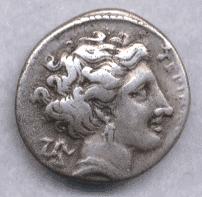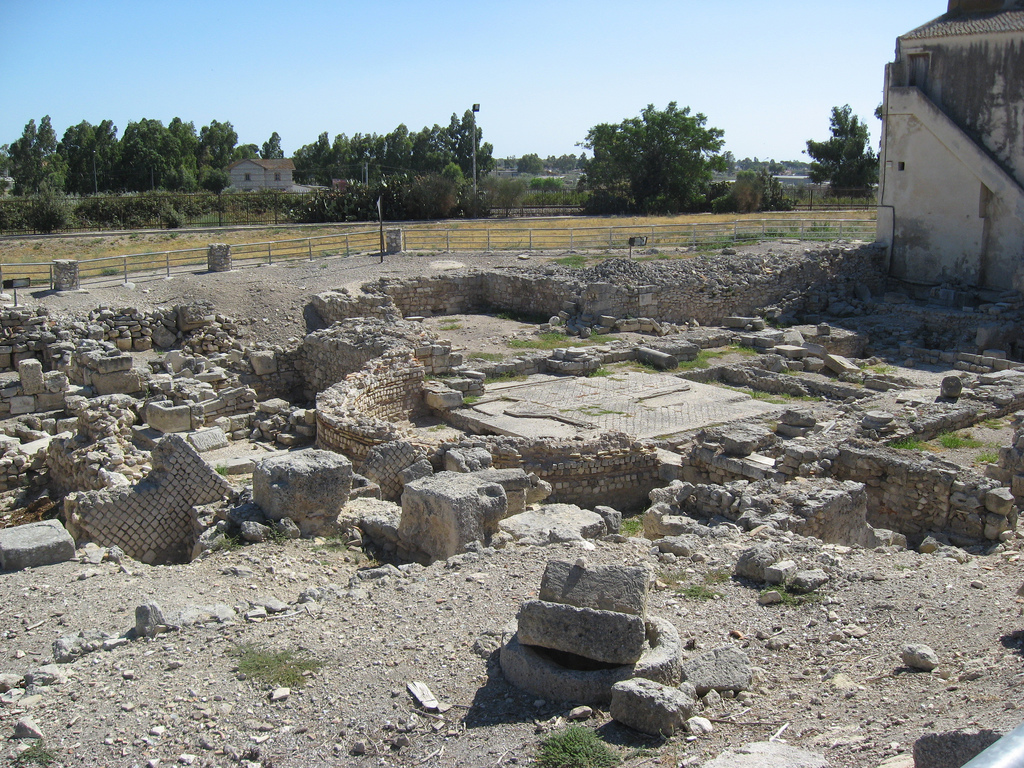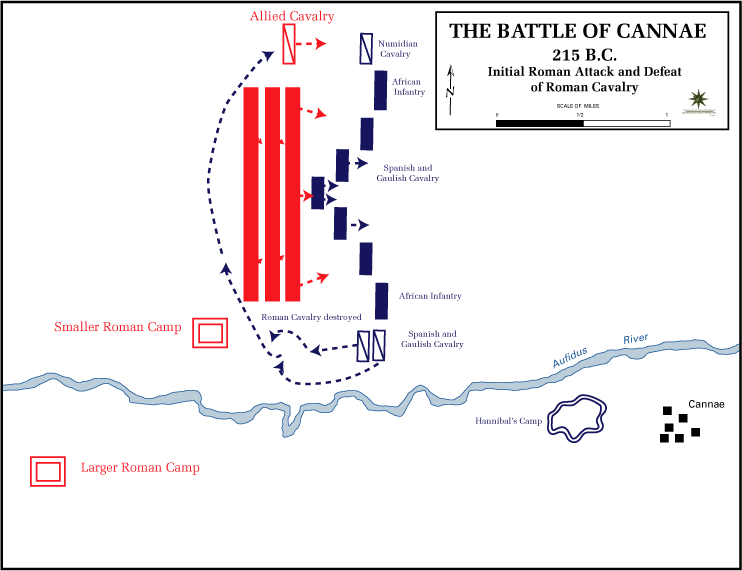|
Battle Of Pandosia
The Battle of Pandosia was fought in 331 BC between a Greek force led by Alexander I of Epirus against the Lucanians and Bruttians, two southern Italic tribes. The Italic army soundly defeated the invading Greeks and killed Alexander during the battle. Background Alexander had arrived in Southern Italy with his army in 334 or 333 BC. He desired to emulate the conquests in the east by his nephew, Alexander the Great, in the west. A call for help from Tarentum, which was at war with the Bruttians, provided the occasion for the expedition. Ancient historians also allege that Alexander was warned by the oracle of Zeus at Dodona that he should beware of the river Acheron and the city Pandosia. Alexander assumed the oracle meant the river and city in Epirus. This encouraged him further to leave for Southern Italy, so he would be as far away from the river and city in Epirus as possible. He won a war with the Bruttians and the Lucanians in Southern Italy and captured seve ... [...More Info...] [...Related Items...] OR: [Wikipedia] [Google] [Baidu] |
Pandosia (Bruttium)
Pandosia ( grc, Πανδοσία) was an ancient city of Bruttium, in what is now Calabria, southern Italy. According to Livy it was situated near the border between Bruttium and Lucania (now Basilicata). Strabo writes it was located in Bruttium, a "little above" Consentia (modern Cosenza). The ''Barrington Atlas of the Greek and Roman World'' places the site of the city in the vicinity of Cosenza, but the village Acri and Castrolibero has been suggested as a more precise location. History According to Strabo it was believed to have been the capital of the Oenotrian kings once. It seems to have certainly received a Greek colony later, as Scylax expressly enumerates it among the Greek cities of this part of Italy, and Scymnus Chius, though perhaps less distinctly, asserts the same thing. It was probably a colony of Crotona; though the statement of Eusebius, who represents it as founded in the same year with Metapontum, would lead us to regard it as an independent and separate colony ... [...More Info...] [...Related Items...] OR: [Wikipedia] [Google] [Baidu] |
Peucetians
The Peucetians ( grc, Πευκέτιοι, Peukétioi; la, Peucetii; later also grc, Ποίδικλοι, Poidikloi, links=no; la, Poediculi, links=no) were an Iapygian tribe which inhabited western and central Apulia in classical antiquity. Two other Iapygian tribes, the Daunians and the Messapians, inhabited northern and southern Apulia respectively. All three tribes spoke the Messapian language, but had developed separate archaeological cultures by the seventh century BC; however, in Peucetian territory ancient Greek and Oscan language were spoken as well, as the legends of the currencies from Rubi and Azetium were trilingual. Peucetians lived in the eponymous region Peucetia, which was bordered by the Ofanto river and the Murge in the north, the Bradano river in the west and the territories of the Greek colony of Taras and the Messapians in the south. This region is mostly coincident with the Metropolitan City of Bari and parts of the provinces of Taranto and Barletta-Andr ... [...More Info...] [...Related Items...] OR: [Wikipedia] [Google] [Baidu] |
Strabo
Strabo''Strabo'' (meaning "squinty", as in strabismus) was a term employed by the Romans for anyone whose eyes were distorted or deformed. The father of Pompey was called "Pompeius Strabo". A native of Sicily so clear-sighted that he could see things at great distance as if they were nearby was also called "Strabo". (; el, Στράβων ''Strábōn''; 64 or 63 BC 24 AD) was a Greek geographer, philosopher, and historian who lived in Asia Minor during the transitional period of the Roman Republic into the Roman Empire. Life Strabo was born to an affluent family from Amaseia in Pontus (in present-day Turkey) in around 64BC. His family had been involved in politics since at least the reign of Mithridates V. Strabo was related to Dorylaeus on his mother's side. Several other family members, including his paternal grandfather had served Mithridates VI during the Mithridatic Wars. As the war drew to a close, Strabo's grandfather had turned several Pontic fortress ... [...More Info...] [...Related Items...] OR: [Wikipedia] [Google] [Baidu] |
Terina (ancient City)
Terina ( grc, Τερίνα and Τέρινα) was an ancient city of Magna Graecia on the north shore of the Gulf of Saint Euphemia, about from Lamezia Terme in Calabria. The site of the city was allegedly found in 1922 by the archaeologist Paolo Orsi near the modern village of Sant'Eufemia Vetere, but a systematic archaeological investigation was only started in 1997 and it is only based on coins found there. Coins, inscriptions and other artefacts retrieved from the site can be seen in the Museo Archeologico Lametino in Lamezia Terme.The actual collocation of the ancient city is in Sant’Eufemia Vetere where the original location is situated on top of a hill called Piano di Tirena. This hill is surrounded by two rivers merging, Savuto and Grande, and it perfectly matches the description provided by the Greek historian Strabo in his major work Geographica, which was first published around 20 AD. History In the fifth century BC the Greek cities Croton and Locri, both locat ... [...More Info...] [...Related Items...] OR: [Wikipedia] [Google] [Baidu] |
Cosenza
Cosenza (; local dialect: ''Cusenza'', ) is a city in Calabria, Italy. The city centre has a population of approximately 70,000; the urban area counts more than 200,000 inhabitants. It is the capital of the Province of Cosenza, which has a population of more than 700,000. The demonym of Cosenza in English is Cosentian. The ancient town is the seat of the Cosentian Academy, one of the oldest academies of philosophical and literary studies in Italy and Europe. To this day, the city remains a cultural hub, with museums, monuments, theatres, libraries, and the University of Calabria. Geography and climate Located at the confluence of two ancient rivers, the Busento and the Crati, Cosenza stands 238 m above sea level in a valley between the Sila plateau and the coastal range of mountains. The old town, overshadowed by its Swabian castle, descends to the river Crati. The modern city lies to the north, beyond the Busento, on level ground. Almost completely surrounded by mount ... [...More Info...] [...Related Items...] OR: [Wikipedia] [Google] [Baidu] |
Siponto
Siponto ( la, Sipontum, grc-gre, Σιπιούς) was an ancient port town and bishopric in Apulia, southern Italy. The town was abandoned after earthquakes in the 13th century; today the area is administered as a ''frazione'' of the ''comune'' of Manfredonia, in the province of Foggia. Siponto is located around 3 km south of Manfredonia. History According to legend, Sipontum was founded by Diomedes, product of the union of the Homeric hero of the same name with the daughter of the king of the Daunians. Siponto was probably founded by the Daunians. Sipontum was a flourishing Greek colony, its Greek name being Sipious (Σιπιούς); having fallen into the hands of the Samnites, it was retaken about 335 BC by King Alexander of Epirus, uncle of Alexander the Great. In 189 BC it became a Roman colony with its original Sipious name still used in Byzantine times, and in 663 AD it was taken and destroyed by the Slavs. In the ninth century, Sipontum was for a time in the pow ... [...More Info...] [...Related Items...] OR: [Wikipedia] [Google] [Baidu] |
Heraclea Lucania
Heraclea, also Heracleia or Herakleia ( grc, Ἡράκλεια), was an ancient city of Magna Graecia. It was situated on the Gulf of Taranto between the rivers Aciris (modern Agri (river), Agri) and Siris (modern Sinni (river), Sinni). The ruins of the city are located in the modern ''comune'' of Policoro in the Province of Matera, Basilicata, Italy. History It was a ancient Greece, Greek colony, but founded at a period considerably later than most of the other Greek cities in this part of Italy. The territory in which it was established had previously belonged to the Ionians, Ionic colony of Siris (Magna Graecia), Siris, and after the fall of that city seems to have become the subject of contention between the neighboring states. The Athens, Athenians had a claim upon the territory of Siris, and it was probably in virtue of this that their colonists the Thurii, Thurians, almost immediately after their establishment in Italy, advanced similar pretensions. These were, however ... [...More Info...] [...Related Items...] OR: [Wikipedia] [Google] [Baidu] |
Livy
Titus Livius (; 59 BC – AD 17), known in English as Livy ( ), was a Ancient Rome, Roman historian. He wrote a monumental history of Rome and the Roman people, titled , covering the period from the earliest legends of Rome before the traditional founding in 753 BC through the reign of Augustus in Livy's own lifetime. He was on familiar terms with members of the Julio-Claudian dynasty and a friend of Augustus, whose young grandnephew, the future emperor Claudius, he exhorted to take up the writing of history. Life Livy was born in Patavium in northern Italy (Roman Empire), Italy, now modern Padua, probably in 59 BC. At the time of his birth, his home city of Patavium was the second wealthiest on the Italian peninsula, and the largest in the province of Cisalpine Gaul (northern Italy). Cisalpine Gaul was merged in Roman Italy, Italy proper during his lifetime and its inhabitants were given Roman citizenship by Julius Caesar. In his works, Livy often expressed his deep affection an ... [...More Info...] [...Related Items...] OR: [Wikipedia] [Google] [Baidu] |
Justin (historian)
Justin ( la, Marcus Junianus Justinus Frontinus; century) was a Latin writer who lived under the Roman Empire. Life Almost nothing is known of Justin's personal history, his name appearing only in the title of his work. He must have lived after Gnaeus Pompeius Trogus, whose work he excerpted, and his references to the Romans and Parthians' having divided the world between themselves would have been anachronistic after the rise of the Sassanians in the third century. His Latin appears to be consistent with the style of the second century. Ronald Syme, however, argues for a date around AD 390, immediately before the compilation of the Augustan History, and dismisses anachronisms and the archaic style as unimportant, as he asserts readers would have understood Justin's phrasing to represent Trogus' time, and not his own. Works Justin was the author of an epitome of Trogus' expansive ''Liber Historiarum Philippicarum'', or ''Philippic Histories'', a history of the kings of ... [...More Info...] [...Related Items...] OR: [Wikipedia] [Google] [Baidu] |
Daunians
The Daunians ( el, Δαύνιοι, Daúnioi; la, Daunii) were an Iapygian tribe that inhabited northern Apulia in classical antiquity. Two other Iapygian tribes, the Peucetians and the Messapians, inhabited central and southern Apulia respectively. All three tribes spoke the Messapic language, but had developed separate archaeological cultures by the seventh century BC. The Daunians lived in the Daunia region, which extended from the Daunian Mountains river in the southeast to the Gargano peninsula in the northwest. This region is mostly coincident with the Province of Foggia and part of Province of Barletta-Andria-Trani today. Daunians and Oscans came into contact in northern Daunia and southern Samnite regions. Gradually, parts of northern Daunia became "Oscanized". Name The ethnonym is connected to the name of the wolf, plausibly the totemic animal of this nation. The cult of the wolf was widespread in ancient Italy and was related to the Arcadian mystery cult. ''Daunos'' m ... [...More Info...] [...Related Items...] OR: [Wikipedia] [Google] [Baidu] |
Messapians
The Messapians ( grc, Μεσσάπιοι, Messápioi; la, Messapii) were a Iapygian tribe who inhabited Salento in classical antiquity. Two other Iapygian tribes, the Peucetians and the Daunians, inhabited central and northern Apulia respectively. All three tribes spoke the Messapian language, but had developed separate archaeological cultures by the seventh century BC. The Messapians lived in the eponymous region Messapia, which extended from Leuca in the southeast to Kailia and Egnatia in the northwest, covering most of the Salento peninsula. This region includes the Province of Lecce and parts of the provinces of Brindisi and Taranto today. Starting in the third century BC, Greek and Roman writers distinguished the indigenous population of the Salento peninsula differently. According to Strabo, the names ''Iapygians'', ''Daunians'', ''Peucetians'' and ''Messapians'' were exclusively Greek and not used by the natives, who divided the Salento in two parts. The southern and I ... [...More Info...] [...Related Items...] OR: [Wikipedia] [Google] [Baidu] |
Pitched Battle
A pitched battle or set-piece battle is a battle in which opposing forces each anticipate the setting of the battle, and each chooses to commit to it. Either side may have the option to disengage before the battle starts or shortly thereafter. A pitched battle is not a chance encounter such as a meeting engagement, or where one side is forced to fight at a time not of its choosing such as happens in a siege or an ambush. Pitched battles are usually carefully planned, to maximize one's strengths against an opponent's weaknesses, and use a full range of deceptions, feints, and other manoeuvres. They are also planned to take advantage of terrain favourable to one's force. Forces strong in cavalry for example will not select swamp, forest, or mountain terrain for the planned struggle. For example, Carthaginian general Hannibal selected relatively flat ground near the village of Cannae for his great confrontation with the Romans, not the rocky terrain of the high Apennines. Likewise, ... [...More Info...] [...Related Items...] OR: [Wikipedia] [Google] [Baidu] |







